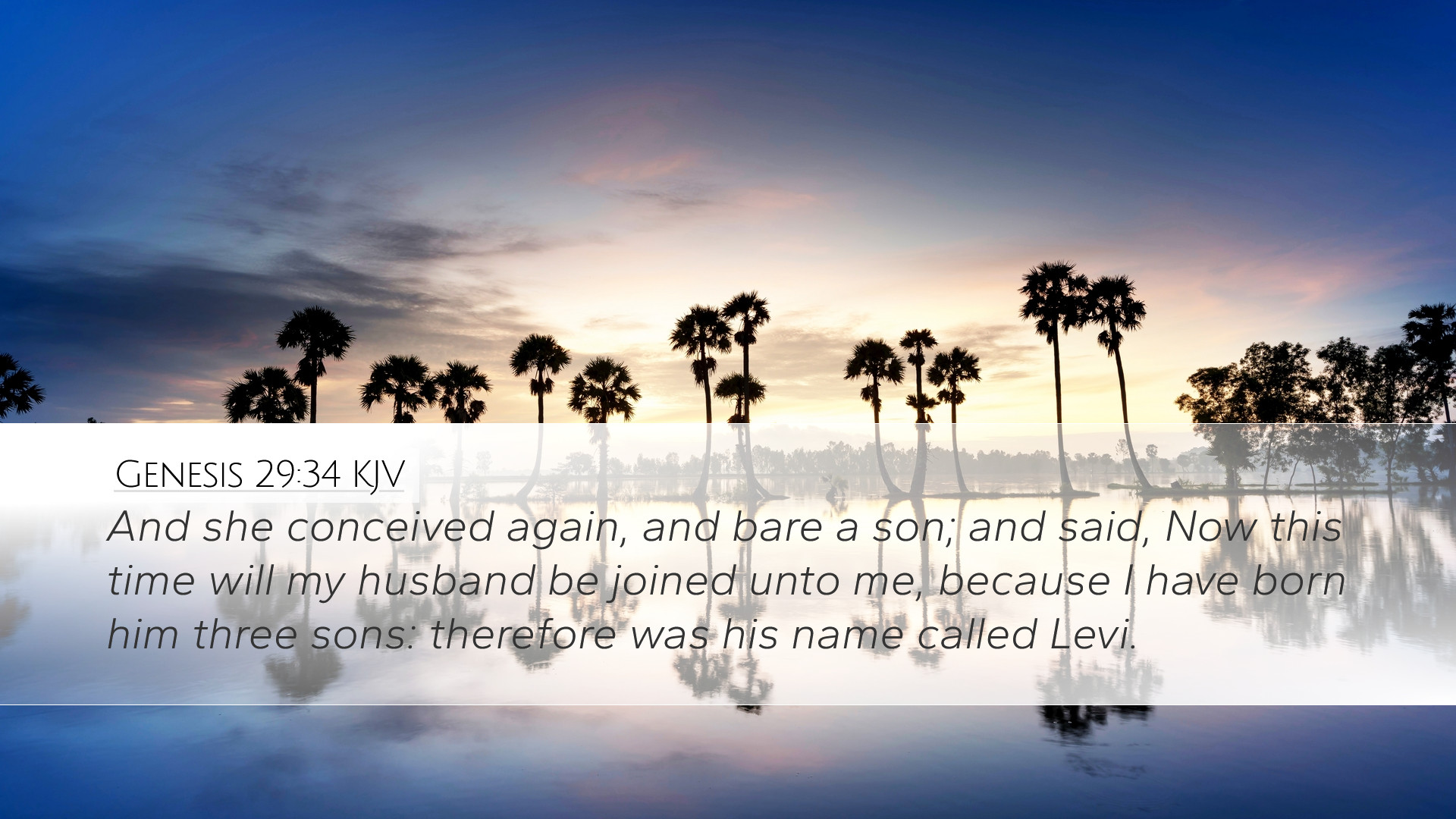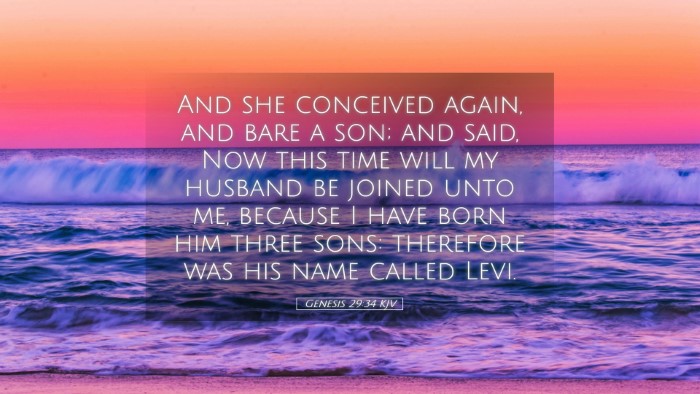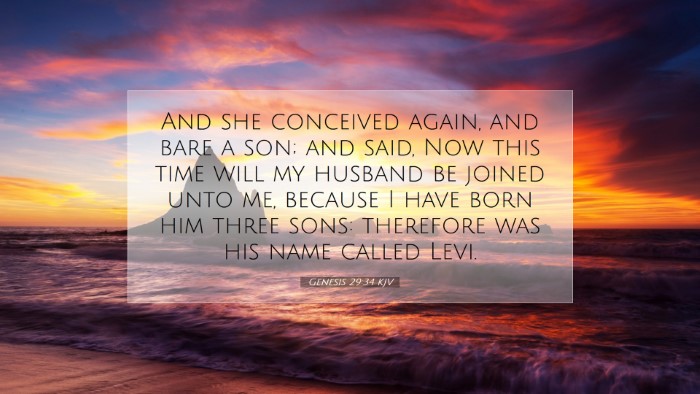Commentary on Genesis 29:34
Verse Context: Genesis 29:34 reads: "And she conceived again, and bare a son; and said, Now this time will my husband be joined unto me, because I have borne him three sons: therefore was his name called Levi."
This verse represents a significant moment in the narrative of Jacob’s family dynamics and the complex relationships within it. Here, we will explore insights drawn from notable public domain commentaries including those by Matthew Henry, Albert Barnes, and Adam Clarke, synthesizing their perspectives to provide a comprehensive overview.
General Overview
Genesis 29:34 is a pivotal verse in the unfolding story of Leah, Jacob’s first wife, and the implications of her motherhood as she vies for Jacob’s affection. This passage not only highlights the emotional struggles of Leah but also sets the stage for the birth of the tribes of Israel.
Significance of Levi's Birth
Levi's birth marked a crucial moment for Leah. According to Matthew Henry, Leah’s lamentation over her relationship with Jacob is expressed through her naming of her sons. The name "Levi," which means "joined" or "attached," reflects her hope that bearing another son will finally secure Jacob's affection and commitment. This is essentially a cry for recognition and love that underscores her relational struggles.
Theological Implications
Albert Barnes emphasizes the theological significance of the naming of Levi. The connection between Leah’s experience and God’s providence is highlighted. Leah recognized God's hand in her fertility, suggesting that divine involvement was an integral part of her narrative. Barnes notes that Leah’s attempt to gain Jacob’s love through childbearing illustrates a deeper spiritual truth pertaining to the human pursuit of affirmation and companionship.
Character Study: Leah
Leah is depicted as a complex character whose identity and worth are heavily tied to her ability to produce offspring. Adam Clarke points out the emotional depth of Leah's experiences. She was unloved compared to her sister Rachel, yet her status as a mother gave her an essential place in God’s plan. Clarke asserts that Leah’s successive pregnancies reveal her desperation for Jacob’s affection, making her character relatable to anyone who has sought love and acceptance.
- Leah's Struggle: Leah's journey involves not just physical labor but an emotional battle to find her place in Jacob's heart.
- Hope and Despair: Every child born represents her hope that her circumstances will change, displaying the human condition of longing for deep connections.
Connections to Israel's History
The birth of Levi is not merely a personal triumph for Leah but a significant moment in the history of Israel. Barnes points out that Levi's descendants, the Levites, would hold a special role within the Israelite community as priests. This underscores a fundamental theological truth: God's plans often unfold through the varied and sometimes painful experiences of individuals.
Spiritual Lessons
Levi’s name evokes the church's calling to be joined to Christ. Just as Leah yearned to be united with her husband through her sons, believers strive to be united with Christ through the transformative power of the Gospel. Matthew Henry articulates that this desire for closeness to God is innate to humanity, reflecting a deep-seated need for relationship and community.
Conclusion
Genesis 29:34 resonates with themes of struggle, hope, and divine purpose. Leah’s life illustrates the complexity of human relationships and God’s overarching sovereignty in the lives of His people.
In synthesizing the insights from Matthew Henry, Albert Barnes, and Adam Clarke, we find a rich tapestry of theological reflection that invites pastors, students, theologians, and Bible scholars to explore their own relationships with God and others. Leah’s story is a reminder of the ways in which God can work through our most profound struggles to bring forth His purposes. As believers, we are encouraged to seek unity with Christ and recognize His presence in our lives, just as Levi was born into a legacy that would serve God's people.
References for Further Study
- Consider the broader narrative of Jacob’s family in Genesis.
- Explore the ramifications of Levi’s lineage in Exodus and beyond.
- Reflect on the emotional dynamics of Biblical characters as representations of societal themes.


